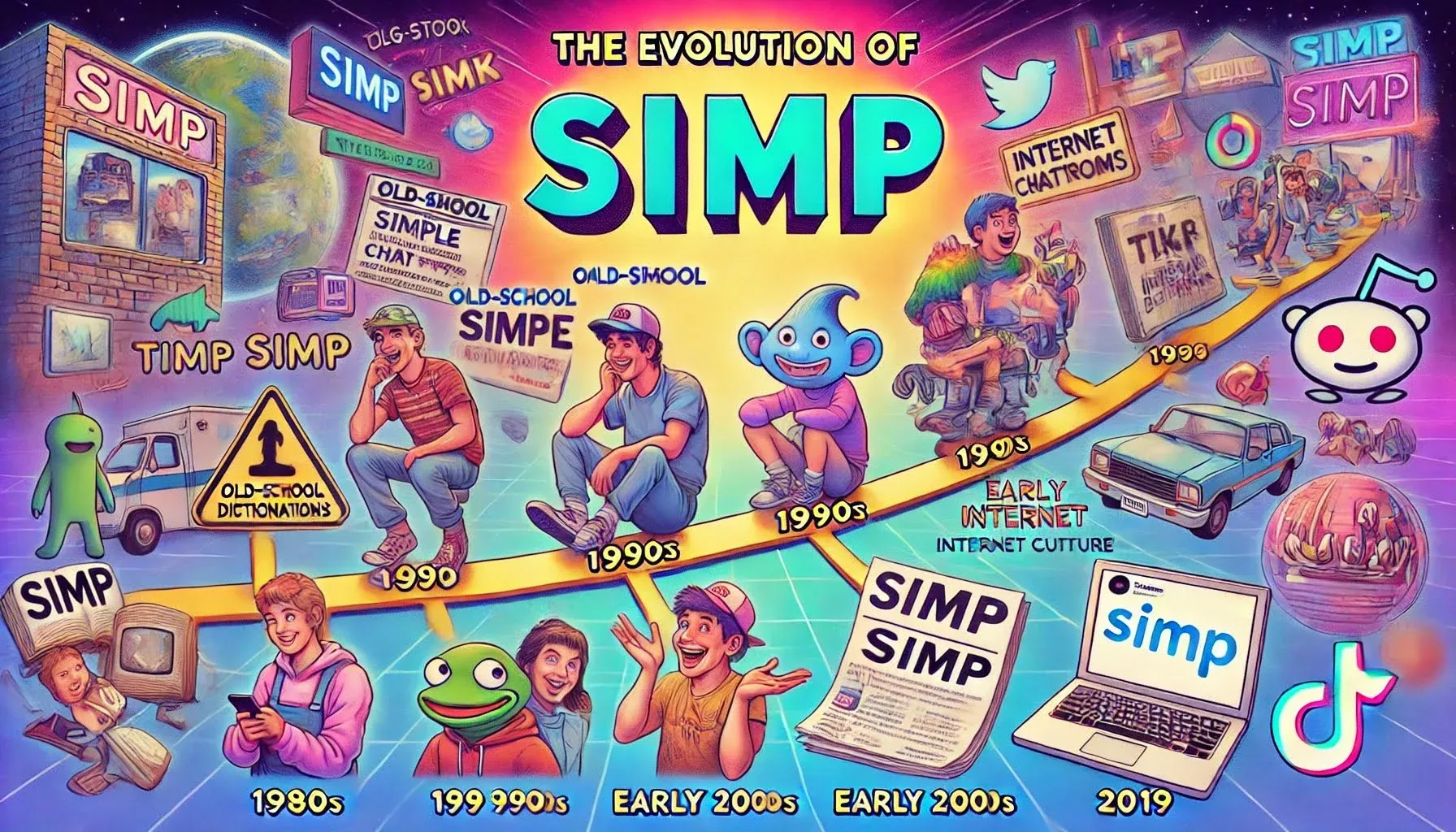What does simp mean? Origin, Extension, Use Cases & More

Last updated:juil. 29, 2024
Table of content
Part 1. What does simp mean
The term “simp” has become a hot topic on social media, especially among teens. It describes someone who goes all out to win over someone they like, often putting their own needs aside.
When that effort isn’t matched or appreciated, the term “simp” gets thrown around. It’s a way to talk about how people show affection and handle relationships in today’s online world. The term is often used pejoratively, suggesting that the person being described is foolish or overly deferential in their pursuit of affection.
For example, if someone goes out of their way to please or shower attention to another person without receiving any reciprocal gestures, they might be called a simp. The term is predominantly used in online discussions and social media interactions, making it a contemporary part of digital communication.
Part 2. Origin of simp slang
The origin of “simp” can be traced back to earlier slang terms, particularly from the 1980s and 1990s, where it was used in various forms to denote simple or foolish behavior.
However, the term “simp” as we know it today began to take shape in the early 2000s and gained prominence in online communities around 2019. Its resurgence can be attributed to internet culture and platforms like TikTok, Twitter, and Reddit, where it quickly spread among younger users.
The evolution of "simp" reflects a broader trend in slang, where words are repurposed and given new meanings based on contemporary social dynamics.
In this case, “simp” emerged from a mix of old-school terminology and modern internet culture, adapting to new contexts and becoming a staple of online discourse. Its rise in popularity highlights how technology and social media are constantly changing the way we talk and connect with each other.
Part 3. Extension: What is No Simp September
"No Simp September" is an online challenge that emerged from internet culture as a playful yet strategic social media event. This informal "challenge" encourages participants to refrain from any acts of simp-like behavior for the entire month of September.
Essentially, it's a month-long exercise in self-discipline, where individuals are asked to avoid excessive flattery, undue attention, or any behavior perceived as simp-like toward others, particularly in romantic contexts.
The term "No Simp September" gained popularity through memes and online forums, resonating with the growing trend of digital challenges that often capitalize on current slang and cultural phenomena.
Participants are encouraged to post their progress or experiences online, contributing to a sense of community and shared goal among those taking part.
While intended as a humorous or motivational trend, "No Simp September" also highlights the complexities of modern social behavior and how terms like "simp" can influence interpersonal relationships and self-perception.
The challenge can serve as a reminder to evaluate one’s behavior in romantic pursuits and strive for a more balanced approach in interactions.
Part 4. How do teenagers use simp slang? Examples
Teenagers frequently use "simp" in various ways that reflect both its cultural significance and the dynamics of their social interactions. For many, the term is a means of expressing disapproval or teasing peers who show an excessive level of affection or attention towards someone.
It’s often used in casual conversations and online discussions to describe behaviors that are perceived as over-the-top or unreciprocated. For instance, if a teenager constantly goes out of their way to impress or cater to someone who shows little interest in return, their friends might jokingly refer to them as a "simp."
Similarly, the term might come up in discussions about celebrity crushes or popular figures, where fans who go to great lengths to show support might be labeled as simps.
Here’s a dialogue example:
- Alex: “Did you see Jamie bought concert tickets for her crush even though they’re not even dating?”
- Jordan: “Yeah, that’s such a simp move. Jamie’s totally overdoing it.”
In this example, the term "simp" is used to describe Jamie’s behavior in a light-hearted manner, illustrating how it can serve as both a critique and a form of social commentary. This casual use reflects the broader trend of how slang evolves and becomes embedded in the fabric of teenage communication.
Part 5. How to talk with your child about simp
Discussing the term "simp" with your child can be an opportunity to engage in a meaningful conversation about relationships and self-respect. Start by asking them what they know about the term and its usage.
Explain that while "simp" might seem like just a funny or trending word, it reflects how people interact in social and romantic contexts.
Emphasize the importance of treating others with respect and maintaining healthy boundaries, regardless of online trends. Encourage open dialogue and be supportive, ensuring they understand the term's implications without feeling judged.
Part 6. Final Words
Understanding slang like "simp" helps bridge generational gaps and fosters better communication with your child. By discussing modern terms and their meanings, you can guide them towards healthier interactions and mutual respect in their relationships.
More Articles Like This



